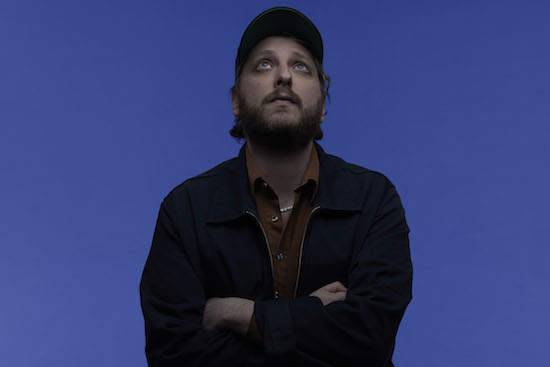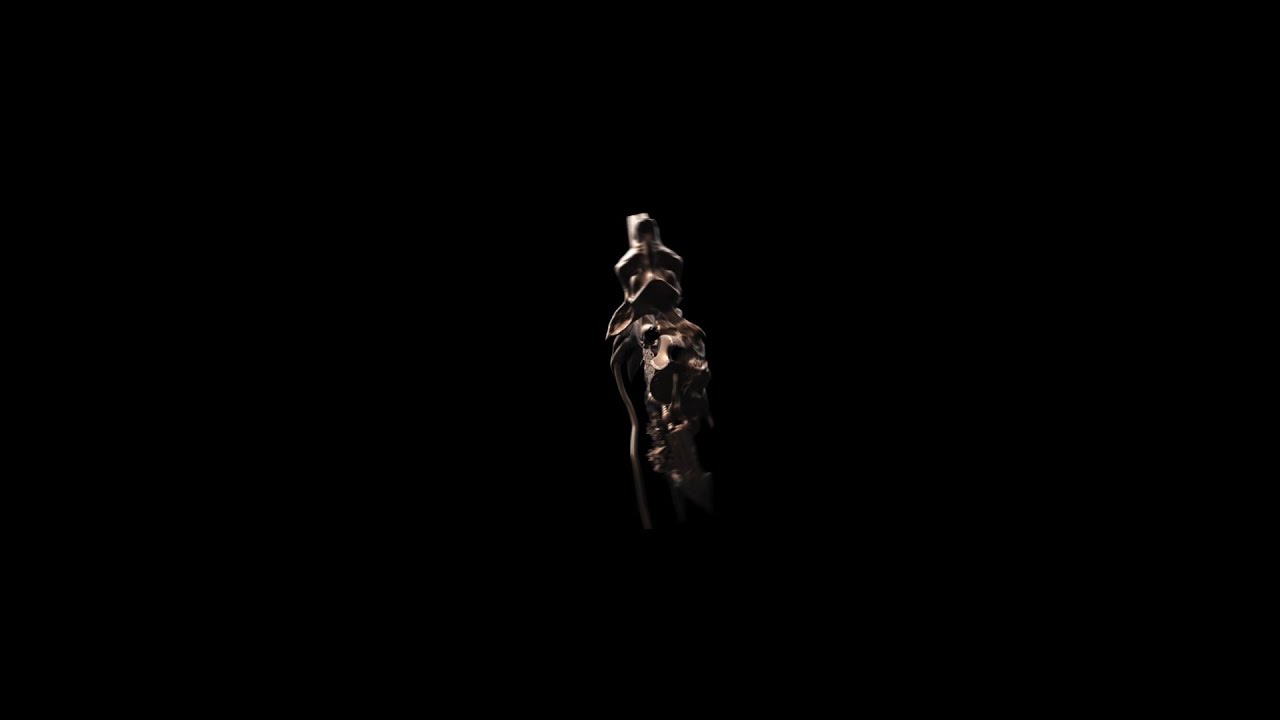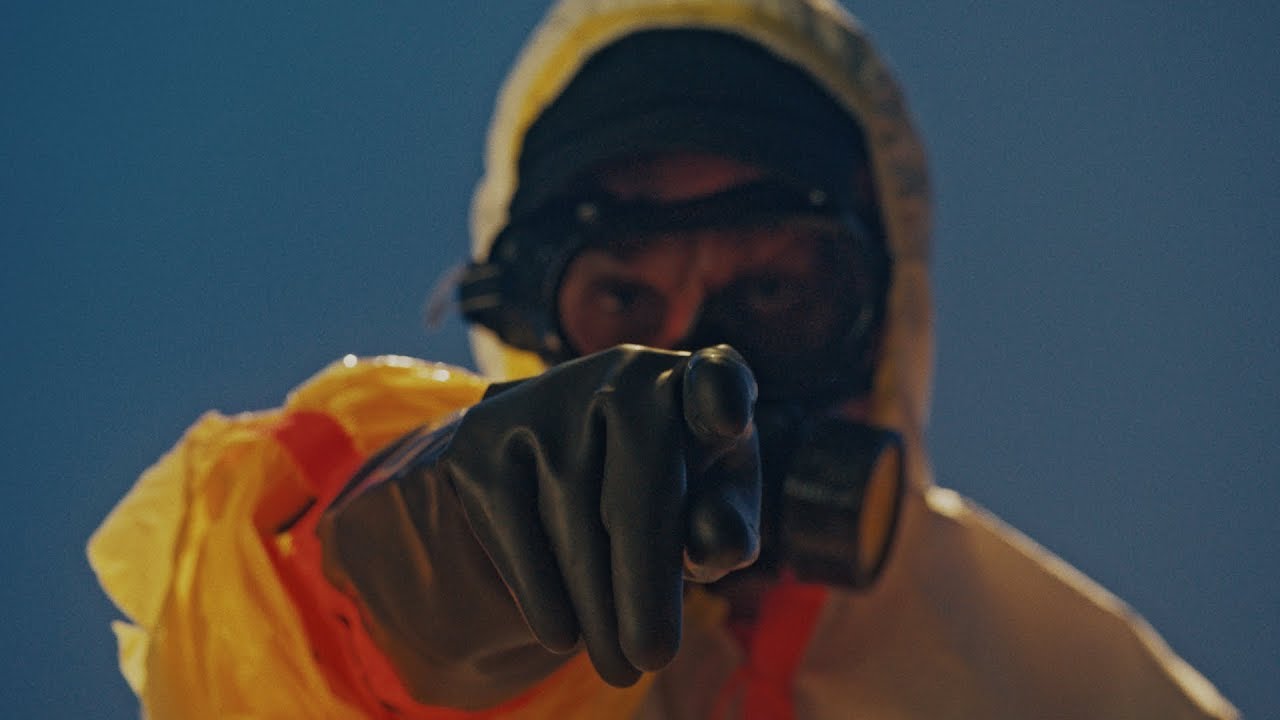It’s hard to comprehend Oneohtrix Point Never’s influence within modern electronic music, with his records spawning numerous producers attempting to emulate his work, from the nocturnal sounds of Replica to the opposing chaotic nature of Garden of Delete.
2018 sees Daniel Lopatin at the peak of his ‘mainstream’ appeal. Last year, he composed the score to the Safdie brothers’ neon-coloured thriller Good Time, and just months ago, he lent his production talents to David Byrne’s American Utopia. Age of, his first studio record since 2015, presents us with something as fragmented as Lopatin’s back catalogue itself, welding together a rich plethora of seemingly disparate ideas that range from medieval folk to country, to various signature production tricks from the producer.
In conversation with him recently at the Warp offices in London, he discussed the bombastic concept of his new record, its nightmarish recording process, the upcoming Myriad live shows, artificial intelligence and being the CEO of his own “twisted Disney”.
What is the concept behind Age Of and the Myriad live show?
Daniel Lopatin: I really like the idea of Age Of being an inversion of 2001: A Space Odyssey, where instead of an advanced race bequeathing apes to evolve and reach their level, it’s set at the end of time when AIs know everything, they can do everything, and they can leave this universe. But, instead they’re just sentimental, and they just hang out dreaming of being as dumb as we were back then. The dreams they have are basically an opera which I call the Myriad and it’s the story of the dumb shit we do over and over again. It’s told in four movements:
‘Age of Ecco’
This is where we can’t express ourselves because we don’t have language and we don’t have tools. We just float listlessly in this digital ether just wanting to express things, but being unable to.
‘Age of Harvest’
After we figure out expression we are then in Age of Harvest. We start extracting energy and vital nutrients from the earth.
‘Age of Excess’
We get really good at it though, and we start sapping the earth dry.
‘Age of Bondage’
By this time we’re so inflated with our stupid shit that there’s nothing to do and nowhere to go. We just have a rusty dry ball called Earth that we sit on top of, then it pops and we start all over again.
The album itself is a little rougher. I didn’t create it to be a parable like the Myriad. The album definitely hints it at the concept, but it’s a lot more subtle. For instance, by the end of the record, it’s a bit more… bondagey.
There’s a track called ‘Myriad Industries’. Is that a fictional company or is it something you’ve actually created?
DL: That’s basically me being a CEO. What I really want for this next phase of my work is to successfully pull off large-scale art projects – fabricating works of art that aren’t just music. But to do that I need to establish some level of trust with financiers so they can say: ‘I can give you a bunch of money and you’ll be able to pay me back?’
I’m just trying to create a production company that involves work that I can’t do with just some headphones in the studio. I want Myriad Industries to be a really fun, yet twisted Disney. It’s really important that it’s mine because at the end of the day, I can’t go into a bank and fabricate 300lb sculptures that hang from the ceiling that look like meat on a skewer. They’d just laugh me out of there. So I have to find a different way to do it.
There’s a lot of fear over the subject at the minute, but you seem to have empathy for Artificial Intelligence, would you say you’re pro-AI?
DL: The first thing I ever learned about AI in the Google era was when they announced their DeepDream project. I remember reading a document about it. I had a serious allergic reaction to their bullshit, but at the same time, I found it fascinating. I knew it was going to be a field of inquiry for a lot of artists because where it was going was so insane. Essentially Google describe the DeepDream algorithms as them assigning a machine the task of learning what a workout weight looked like. It studies every picture of weights it could, but it came back with an error – it created the image of a weight, but along with it was a white arm attached to it, because all of the images of weights on the internet have white arms lifting them. It occurred to me that this is fundamentally a great way to teach ourselves that white history is fucked up.
It’s this cliché that history is written by the winners, but it’s taken to a satanic level where we’re creating a recorded history on the internet that’s basically our testament. It can operate in a way that fights these tendencies to tell only one side of the story. But that happens naturally among people when they’re just chaotically living their lives in this scatological private reality of the internet. When you ask the algorithm to go through and composite an image of something from a database, that database can’t be complicit in what’s wrong in history. It needs to acknowledge every seedy alleyway and all of our truth or else we’ll end up with a weight held by a white arm. The Myriad is basically that. It’s the story I imagine those AIs would come up with, the earth becomes a music box to spit out my music because I’m an egomaniac.
There are moments on the record where it feels like you’re fusing the urban and the rural… it almost feels like a folk horror.
DL: It was literally folk horror because that was the situation I was in last summer. I got to New York to work on the record, and it just felt like it was a wretched place to work. So I decided I was gonna do the cliché thing where a composer goes to the woods to make something – it felt like this perfectly stupid idea. So I went to the suburbs in Massachusetts – where I’m from – in a town that I wasn’t familiar with.
I stayed in this house that looks like an alien egg. It’s round, made of glass, with an insane concrete hood. But when the sun went down for the first time, I realised I’d completely miscalculated my fears – because it’s all glass you’re on display to the entire town of uniform boring houses – this weird thing is on a hill. I have the lights on. I’m recording and I just feel strange. On top of that, the lights are on, and moths are suicidally flying into it.
The ten hours when the sun was up was basically the happy time where I work and I go to the supermarket, but when the sun goes down I’m just alone and I’m terrified. When I got there I moved a dining room table forward to be closer to the glass so I could feel like I was outside when I was working, but the centre of the table was directly underneath this bizarre medieval chandelier and it was really close to my head. So when I stood up I would bash my head, and I was like: ‘dude, if this hits this at a certain angle, it’s going to go straight through my head – I’m done!’ I didn’t really have anywhere else to go and I didn’t wanna move all my shit, so I just kind of dealt with it. But I think it created a tractor beam of power. It was this place where I was always a little bit stressed out and I think I channelled that into the music. Recording the album was like a pleasant nightmarish pastoral reality.
Have you always worked in the day then?
DL: Yeah, I’m like a hard-line ‘9-5er’. I can’t stay at home because I’ll just end up playing PlayStation or something. If I go to the studio early enough it feels like doing real work rather than just hanging out and doing stuff. And I give myself a pretty good shot at something happening. After five at the studio I usually work at, other people start showing up, and it gets really busy. And that’s not fun for me because I’m private. Basically – I just don’t like other people hearing me recording.
How come you chose the Jim Shaw painting as the artwork?
DL: Jim Shaw is amazing. The Jim Shaw painting is probably my favourite thing about the whole album. I’d never seen his work in person, so I went to his show at Metro Pictures. I just got chills all down my body when I saw that painting – I lost my cool. I took about 17 pictures from different angles and crops and said to my manager: ‘I know this isn’t going to happen but, can we at least see if Jim would let us use this?’ I already knew I wanted it to be the cover – she texted me back like do you realise it’s called ‘The Great Whatsit?’, which is like a synonym for the album title – to me they mean exactly the same thing. The way I thought about it was that you can take that 2012 MacBook and replace it with anything, as long as it’s glowing and those three suburban women will always believe that it’s the answer to their problems.
I’ve noticed that you’ve brought your vocals to the forefront on a lot of tracks on Age of, tell me about that decision?
DL: I felt like I had things to say. When I feel like I don’t have anything to say I’ll avoid it, but there’s an song on ‘I Know It’s Taking Pictures From Another Plane (Inside Your Sun)’ from Rifts which is kind of like a Syd Barrett song. I’ve always been into writing weird psychedelic pop songs – it’s just my taste – so when I decided it was time to get back to work as OPN, I was accustomed to working with a lot of singers, because I’d been writing to them. And also when I was living in that house last summer, my friend used to come over and we used to do cut-up poetry over loops from the album. He’d just use stuff he’d written and I’d see if it fit the rhythmic aerometry of the loop. We were just geeking out.
I remember when I first accessed the internet – this is showing my age a bit – I was like ‘shit! I can look up the lyrics to anything?’ So I looked up the lyrics to My Bloody Valentine’s Loveless, and I wish I hadn’t. It’s not that they’re bad – they’re pretty interesting to just read – but that’s not an album where you wanna know what they’re saying. That’s some event horizon shit you don’t want to see into that world. It’s just pure sexual magic.
Have you ever read David Keenan’s review of R Plus Seven?
DL: I must have. What did he say?
He calls it ‘sleazily seductive’.
DL: Fuck Yes! David Keenan, I love you. It’s tricky for me because the sexiest records for me have always been slippery (no pun intended) incompleteness, somewhere between the idea of noise and music. In this in-between space, things that are somewhat concrete, but soft enough to change, somewhat chaotic but able to grasp onto something, that gives an armature and completion. Loveless is exactly that. It’s the perfect expression of a musical state between noise and sugary melody. I’ve only ever thought a few other records are sexy. Suicide’s self-titled is insanely so, and on some level – this sounds super weird – but some of those abstract German Mille Plateaux records were sexy. No one usually thinks of Oval as sexy but 94Diskont is incredibly so. It’s up there with the sexiest shit I’ve ever heard.
And back to the question, my wife loves R Plus Seventhe most so I would hope that it’s sexy. It’s also low-key for her. I just met her and she was just incredible; there this was the ease in which she was able to be beautiful, I was just in awe of her. On Age of when she visited me I wrote ‘Rain Cats’, which is probably the sexiest song on the record.
’The Station’ is pretty sexy too
DL: Yeah, very sexy. It was written for Usher.
For real?
DL: Yeah, he turned up at the first Anohni show. He asked someone who is now my agent, but wasn’t at the time, something along the lines of: ‘Who’s the producer on the chaotic songs?’, or ‘Who’s the guy doing all the noisy stuff on stage?’ They said: ‘Oh, that’s Oneohtrix Point Never, you should meet him’. So we had this conversation after the gig in the foyer area, and he was like: ;You should write some music for me sometime’. He listened to Rifts in his car, and he did an Instagram story that was just him jamming super hard to ‘Behind the Bank’. Long story short, I wrote ‘The Station’ for him because I thought it would be interesting for him to sing on a throwback track, but like an OPN’d out Jermaine Dupri song.
Is it just yourself and Ahohni who sing on the record?
DL: Just Anohni and me who sing, which I’m very grateful for because I don’t know if she’s gonna sing like that again. I think she said what she really needed to say on HOPELESSNESS, and I think she felt like that was definitive. Her art is so strong and incredible, and I think she has got other things to focus on. She’s like my favourite person in the world.
Did you write the lyrics for her?
DL: They were all lyrics that I wrote. She pulled up at the studio, and I couldn’t believe I got her to come out. She’s like: ‘OK, what do you want me to do?’ I said I wanted her to sing backup on most of the songs, but for this one I want it to be yours. She’s like: ‘OK, I need lyrics’. I said I don’t have any, it’s yours, and she shook her head. So, I wrote lyrics, and I’d never thought of the song as anything other than a military march chant. Originally, I just thought, Anohni will say what needs to be said. But she told me ‘no, you will say what needs to be said!’ – so that’s what I did.
Oneohtrix Point Never’s new album Age Of is out on June 1 via Warp Records. He brings his Myriad live show to London’s Barbican on July 7. For more information, head here




